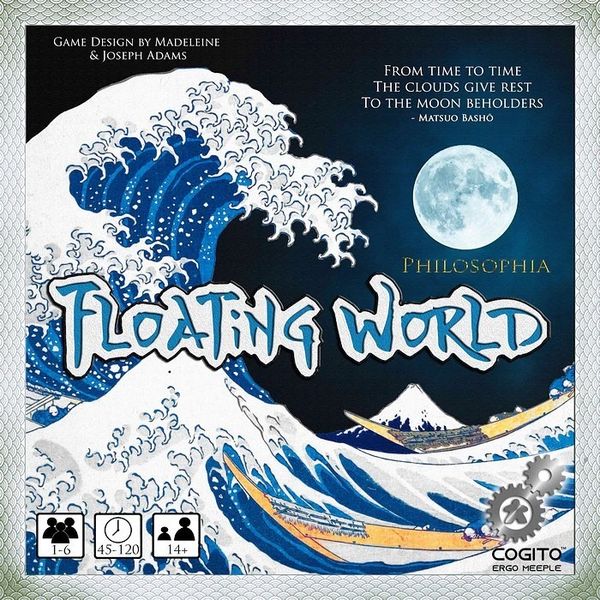Philosophia: Floating World (2021) Board Game
Philosophia: Floating World is a board game that was released in 2021, designed by Utagawa Hiroshige and Katsushika Hokusai, two renowned Japanese artists. The game takes players on an adventure through the mystical and serene world of medieval Japan, exploring its rich culture and history through gameplay.
Game Components of Philosophia: Floating World
How To Setup Philosophia: Floating World
To set up the game, each player chooses one of the six unique characters, each with a unique power and a mysterious secret. Players start with a basic deck and a player board. The game includes a draw phase, a collect phase, and an action phase, which are all explained in detail during the initial setup. Ensure all components, including cards, tokens, and miniatures, are distributed correctly according to the player’s chosen character.
Gameplay Mechanics and Game Objective
Mechanics
Game Objective
Player Experience
Philosophia: Floating World offers a dynamic and immersive experience with its sandbox-style gameplay, allowing players to explore feudal Japan in various ways. The game is quick to learn but contains deep strategy, making it appealing to both new and experienced players. The simultaneous play mechanism ensures zero downtime, keeping all players engaged throughout. However, this mechanism can sometimes lead to chaos, especially with six players, and may require a turn-based variant for beginners.
Pros
Cons
Personal Thoughts on Philosophia: Floating World
Philosophia: Floating World is an excellent choice for those who enjoy deep strategy, beautiful artwork, and dynamic gameplay. It is ideal for groups of players who can handle the simultaneous nature of the game and are looking for a game that offers a blend of combat, building, and wisdom-gathering in a feudal Japanese setting. While it may be more chaotic with a full complement of six players, the game’s flexibility and replayability make it a great addition to any board game collection.
We are supported by our audience. When you purchase through links on our site, we may earn an affiliate commission, at no extra cost for you. Learn more.

